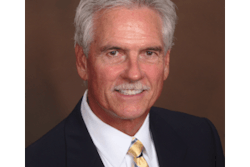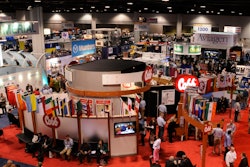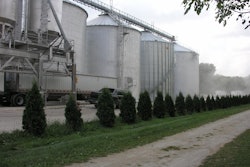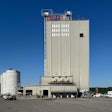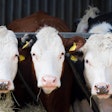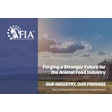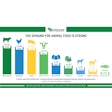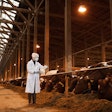Members will descend upon Maui, Hawaii, for the NGFA’s 114th Annual Convention, held March 3-5, 2010 at the Westin Maui Resort & Spa. The NGFA convention again will feature a high-level, business-focused program featuring top policymakers, substantive open forums and outstanding general sessions exploring the most important issues facing the industry in the year ahead. These convention sessions will provide information you need to strategically position your business for success.
“The NGFA has long prided itself on being an industry-driven organization, and our convention, as a policy-level event, is one of the best opportunities members have to express their views on how the NGFA should address key issues,” says Randall Gordon, vice president, communications and government relations. “The convention also attracts top management officials from the financial and rail transportation sectors, and is a great opportunity for industry members to explore business opportunities with fellow members and allied industries.”
Most NGFA committees will meet during the convention — generally, committee meetings are open, presenting an excellent forum to learn the latest and provide input on policy matters facing the industry. The NGFA convention also is an ideal opportunity to interact with colleagues and exchange ideas — schedule a side meeting with suppliers, customers or clients; develop new business ideas with other convention attendees; and reward key employees and give them the opportunity for professional development.
Convention Program Highlights
Wednesday, March 3
NGFA Committee Meetings/Open Forums
In addition to committee meetings, three NGFA committees will host two separate Open Forums on key issues:
The Country Elevator Committee and Finance and Administration Committee will co-host an Open Forum on “Alternative Financing Options” for grain hedgers. When will the market volatility of 2008 repeat? How will hedgers be affected and how will lenders be able to respond? What alternative sources of financing or alternative strategies will be available to hedgers to help meet margining requirements? A panel of lenders and others who provide alternative tools will discuss these issues and respond to questions.
The Rail Shipper/Receiver Committee will host a second Open Forum. Kevin Kaufman, group vice president, Burlington Northern Santa Fe Railway, and Tony Hatch, ABH Consulting, will provide a global market overview and how it relates to demand for transportation services. Kaufman’s comments will zero in on conditions in Asia and how rail transportation demand — both current and future — will be affected. Hatch will address potential impacts of pending rail legislation.
Thursday, March 4
Opening General Session
Michael J. Swanson, agricultural economist, Wells Fargo Bank, will present a major economic address examining the current economic, financial and political climate and how those factors will interact as the U.S. economy moves toward recovery. A well-known and prolific author and speaker, Swanson will provide an executive-level view with relevance to all NGFA member businesses.
Charles Carey, vice chairman, CME Group, will address key futures-related issues at the Chicago Board of Trade, including recent changes to the CBOT wheat contract and an update on performance of the contract. Carey also will discuss top priorities of the CME Group as it works to fulfill its price discovery and risk management roles for the grain, feed and processing industry.
McDonald’s, Wal-Mart and most other companies with links to the food system are implementing agricultural sustainability initiatives that will alter dramatically the obligations imposed on suppliers — including grain, feed and processing companies. Presented by Ron Olson, vice president of grain operations for General Mills, Inc., this session will focus on what sustainability is; how it will affect agronomic/ grain and animal production; what’s driving this phenomenon; how fast it’s coming; and what kinds of expectations will be imposed on suppliers.
Thursday morning’s opening session will culminate in a “Market Performance Review” panel examining how well U.S. futures markets are serving the needs of commercial grain hedgers.
Among issues discussed by this top-notch panel of experts will be the participation and impacts of investment capital; the role played by U.S. regulators and impacts of financial regulatory reform legislation; and effects of changes to futures contracts in enhancing performance.
Friday, March 5
NGFA Chairman’s Address — At the conclusion of his two-year term as elected industry chairman of the NGFA, Tom Coyle, Chicago & Illinois River Marketing LLC, will deliver the traditional Chairman’s Address focusing on major accomplishments of the organization and significant challenges facing the industry in the year ahead.
The American Farm Bureau Federation (AFBF) is the largest association representing U.S. farmers and ranchers and plays a key role in agricultural policy decision-making in Washington. AFBF began an aggressive campaign last fall opposing Congressional attempts to pass a “cap-and-trade” climate change bill based primarily on analytical work highlighting the myriad costs to U.S. agriculture, including the potential conversion of large numbers of acres from cropland to forest. Dr. Bob Young (invited), chief economist for AFBF, is at the forefront of this research and will give his perspectives on likely outcomes of the public policy debate on climate change and its impacts on the future of U.S. agriculture.
Marc Fleischaker, chairman of the Washington, D.C., law firm Arent Fox, has served for many years as the NGFA’s outside counsel and is a recognized expert on association and non-profit legal matters. Fleischaker will present a review of significant legislative, regulatory and policy initiatives currently underway in Washington that have the potential for major impacts on the grain, feed and processing industry. Among Fleischaker’s topics will be legislative and regulatory efforts to address climate change; OSHA initiatives on combustible dust; card-check and other labor-related issues; and activities related to the international biosafety protocol on biotechnology-enhanced commodity shipments.
Global Trade/International Customers Panel — A high-level panel of international grain and feed customers is being invited to address new and ongoing challenges to trade in major international markets. Key issues discussed will include disruptions in trade caused by problems in the global regulatory environment for biotechnology-enhanced products, the use of non-tariff trade barriers under the guise of non-science based phytosanitary issues, and the opportunities associated with a more diverse and more sophisticated global customer base.


